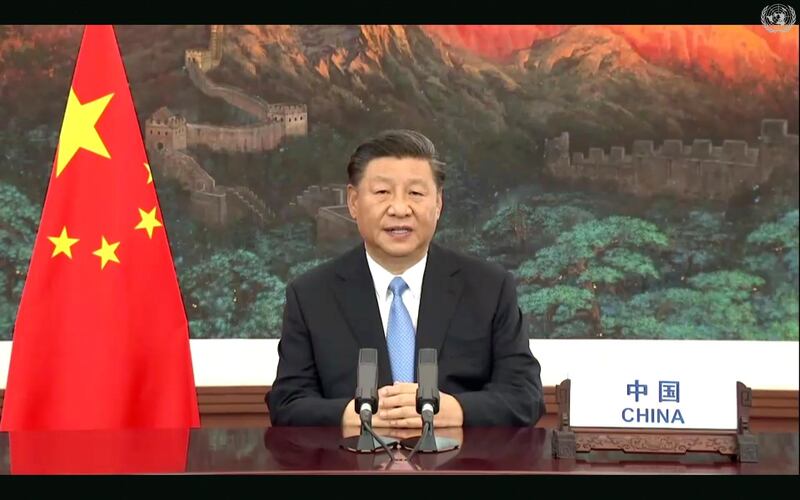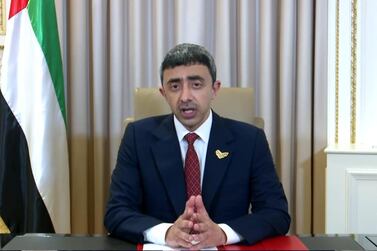Chinese President Xi Jinping has called for global unity and scientific innovation to tackle the twin challenges of the coronavirus pandemic and the climate crisis.
Addressing the 75th UN General Assembly on Tuesday, Mr Xi began his speech on the subject of the pandemic, calling for global solidarity.
“The virus will be defeated. Humanity will win this battle. Facing the virus, we should put people and life first. We should mobilise all resources to make a science-based and targeted response,” he said, addressing the UN headquarters via a video call.
“No case should be missed and no patient should be left untreated, the spread of the virus must be contained. Facing the virus, we should enhance solidarity and get this through together.
“Covid-19 will not be the last crisis to confront humanity so we must join hands and be prepared to meet even more global challenges. Covid-19 reminds us that we are living in an interconnected-global village with a common stake,” he said.
In what appeared to be a jab at the United States, Mr Xi said nations trying to take advantage of others and playing politics during the coronavirus pandemic would not be spared by the disease, which has killed nearly 1 million people worldwide.
He said that Beijing has "no intention to fight either a Cold War or a hot one with any country," as tensions grow between China and the United States.
"We will continue to narrow differences and resolve disputes with others through dialogue and negotiation. We will not seek to develop only ourselves or engage in zero sum game," Mr Xi said.
In an earlier speech, US President Donald Trump called the coronavirus “the China virus” and accused the WHO and Beijing of failing to prevent its global spread. The Chinese UN representative later rejected Mr Trump’s “baseless accusation” at the New York headquarters, where envoys had to socially-distance for the first time in history.
“We should follow the guidance of science, give full play to the leading role of the World Health Organisation and launch a joint international response to this pandemic. Any attempt of politicising the issue of stigmatisation must be rejected,” Mr Xi responded.
Mr Xi added that the pandemic should serve as a trigger for humanity to launch a green revolution to tackle climate change.
He called on nations to honour the goals of the 2015 Paris Climate Agreement, to keep the global average temperature to well below 2 °C (3.6 °F) above pre-industrial levels and to try and limit the increase to 1.5 °C. However, China is currently the largest global emitter of greenhouse gases – it emitted 10.33 billion tonnes of CO2 last year (GtCO2).
“China will scale up its intended nationally determined contributions by adopting more vigorous policies and measures. We aim to have Co2 emissions peak before 2030 and achieve carbon neutrality before 2016,” Mr Xi said.
“We call on all countries to pursue innovative coordinated green and open development for all seize the historic opportunities presented by the new round of scientific and technological revolution, and the industrial transformation achieve a green recovery of the world economy in the post COVID era, and thus create a powerful force driving sustainable development forward.”






